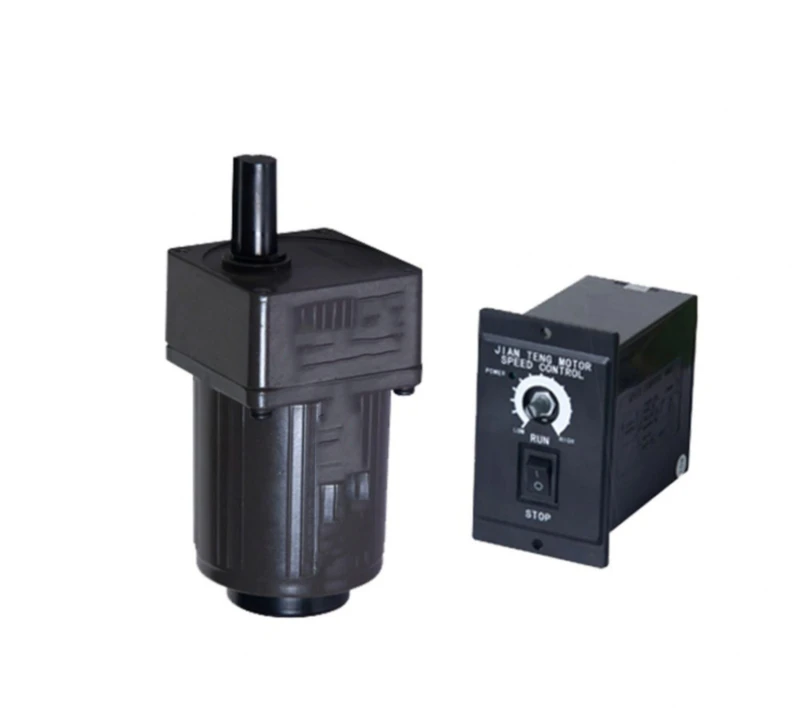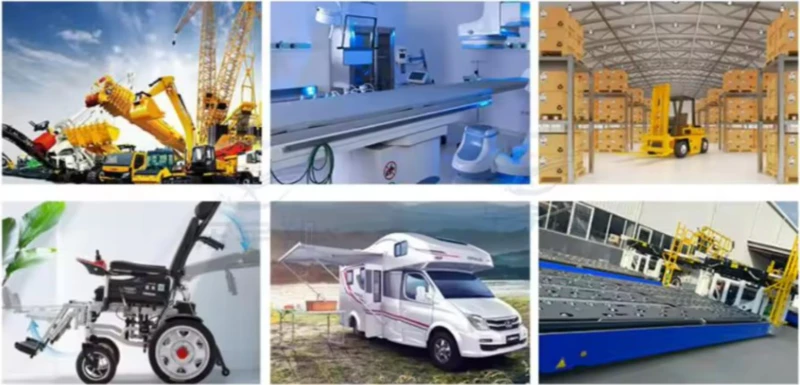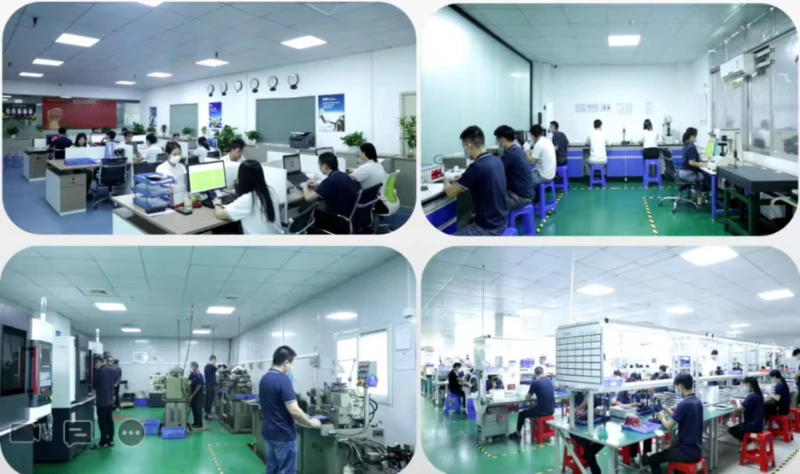Application of Three-Phase Motors in Chemical Experimental Equipment
Introduction
Three-phase motors play a crucial role in the field of chemical experimental equipment, offering unparalleled efficiency, reliability, and performance. This article delves into the various applications and advantages of utilizing three-phase motors in chemical research and industrial processes.
Fundamentals of Three-Phase Motors
Three-phase motors are electric motors that operate on a three-phase power supply, characterized by three alternating currents that are 120 degrees out of phase with each other. They are known for their robustness, efficiency, and ability to deliver consistent power output, making them ideal for heavy-duty applications in chemical laboratories.
Efficiency in Chemical Processes
Efficiency is paramount in chemical processes where precise control and energy conservation are critical. Three-phase motors excel in providing high levels of efficiency, reducing energy consumption and operational costs. This efficiency translates to lower heat generation, which is crucial for maintaining the integrity of sensitive chemical reactions.
Consistent Power Delivery
One of the standout features of three-phase motors is their ability to deliver consistent power. This is essential in chemical experiments where fluctuations in power can lead to inaccuracies, equipment failures, or even hazards. The smooth and reliable power output of three-phase motors ensures that experimental setups run seamlessly.
Durability and Longevity
Three-phase motors are built to withstand harsh operating conditions, making them highly durable and long-lasting. This is particularly important in chemical laboratories where equipment is often exposed to corrosive substances, high temperatures, and continuous operation. The robust construction of three-phase motors ensures they can endure such conditions without compromising performance.
Applications in Mixing and Agitation
In chemical laboratories, mixing and agitation are critical processes that require precise control and consistency. Three-phase motors are commonly used in mixers and agitators due to their ability to provide smooth and adjustable speed control. This ensures homogeneous mixing of chemicals, leading to accurate and reproducible results.
Pumping and Fluid Handling
Three-phase motors are extensively used in pumping systems for fluid handling in chemical experiments. Their ability to provide high torque and continuous operation makes them ideal for applications such as transferring corrosive chemicals, handling viscous fluids, and maintaining constant flow rates.
Temperature Control Systems
Temperature control is a vital aspect of chemical experiments, and three-phase motors play a key role in heating and cooling systems. Their efficiency and reliability ensure precise control of temperature, which is essential for conducting experiments under specific conditions and achieving accurate results.
Automation and Control
With the advent of automation in chemical laboratories, three-phase motors have become integral components of automated systems. Their compatibility with advanced control systems allows for seamless integration, enabling precise and automated control of various experimental processes, thus enhancing productivity and accuracy.
Reduction of Operational Costs
Operational costs in chemical laboratories can be significantly reduced by utilizing three-phase motors due to their high efficiency and low maintenance requirements. The energy savings and reduced downtime associated with these motors contribute to overall cost-effectiveness, making them a preferred choice for laboratory equipment.
Noise Reduction
Noise levels in a laboratory environment can impact both the comfort of personnel and the accuracy of experiments. Three-phase motors are designed to operate quietly, reducing noise pollution and providing a conducive environment for conducting delicate chemical processes.
Environmental Considerations
Environmental sustainability is a growing concern in the chemical industry. Three-phase motors contribute to environmental conservation by reducing energy consumption and greenhouse gas emissions. Their high efficiency and long lifespan minimize waste, aligning with sustainable practices and regulatory requirements.
Image of Three-Phase Motor

Safety in Chemical Laboratories
Safety is a paramount concern in chemical laboratories. Three-phase motors are designed with safety features such as thermal overload protection, explosion-proof enclosures, and fail-safe mechanisms. These features help prevent accidents and ensure the safety of laboratory personnel and equipment.
Scalability and Flexibility
Three-phase motors offer scalability and flexibility, making them suitable for various experimental setups. Whether it’s a small-scale laboratory experiment or an industrial-scale chemical process, these motors can be easily adapted to meet the specific requirements, providing versatility in application.
Compatibility with Advanced Sensors
The integration of advanced sensors with three-phase motors enhances the precision and control of chemical experiments. Sensors can monitor parameters such as temperature, pressure, and flow rate, providing real-time data that can be used to adjust motor performance and optimize experimental conditions.
Maintenance and Reliability
Regular maintenance is essential to ensure the reliability and longevity of laboratory equipment. Three-phase motors are known for their low maintenance requirements, thanks to their simple and robust design. Routine inspections and minor adjustments are usually sufficient to keep them running smoothly.
Cost-Effective Solution
Investing in three-phase motors is a cost-effective solution for chemical laboratories. Their high efficiency, reliability, and long lifespan contribute to lower total ownership costs. The initial investment is often offset by the savings in energy, maintenance, and operational costs over time.
Improving Experimental Accuracy
Accuracy is crucial in chemical experiments, and three-phase motors play a vital role in achieving precise results. Their consistent power delivery, smooth operation, and ability to maintain stable conditions help improve the accuracy and reproducibility of experimental data.
Integration with Laboratory Information Management Systems (LIMS)
Three-phase motors can be integrated with Laboratory Information Management Systems (LIMS) to streamline data collection, analysis, and reporting. This integration enhances the efficiency of laboratory operations, providing a centralized platform for managing experimental data and optimizing workflows.
Image of Application Scenario

Advancements in Motor Technology
Recent advancements in motor technology have further enhanced the performance of three-phase motors. Innovations such as variable frequency drives (VFDs) and smart motor control systems enable precise control of motor speed and torque, improving the efficiency and flexibility of chemical experimental setups.
Energy Conservation Initiatives
Energy conservation is a key initiative in the chemical industry. Three-phase motors contribute to these efforts by reducing energy consumption through their high efficiency and advanced control features. Implementing energy-efficient motors is a step towards achieving sustainability goals and reducing the environmental impact of chemical processes.
Case Studies
Several case studies demonstrate the successful application of three-phase motors in chemical experimental equipment. These studies highlight the benefits of using three-phase motors, including improved efficiency, reduced operational costs, enhanced safety, and better experimental outcomes. These real-world examples provide valuable insights into the practical advantages of three-phase motors.
Future Trends
The future of chemical experimental equipment is closely tied to the development of three-phase motor technology. Emerging trends such as the integration of artificial intelligence, IoT, and advanced materials are expected to further enhance the capabilities of three-phase motors, driving innovation and improving the efficiency of chemical processes.
Image of Factory

Conclusion
In conclusion, three-phase motors are indispensable in the realm of chemical experimental equipment. Their efficiency, reliability, and versatility make them ideal for a wide range of applications, from mixing and agitation to temperature control and automation. Investing in three-phase motors not only enhances the performance and accuracy of chemical experiments but also contributes to energy conservation and cost reduction.
Company Product Promotion
Our company is a leading player in the Chinese motor market. We offer a wide range of products, including three-phase motors, DC motors, encoder DC motors, hydraulic motors, servo motors, driveline motors, and brake motors. With a comprehensive array of fully automated CNC production equipment and automated assembly facilities, we guarantee superior quality, competitive prices, and excellent service. Customers are welcome to customize products based on drawings or samples. Our commitment to excellence ensures that our products meet the highest standards of performance and reliability.
Author: Czh.